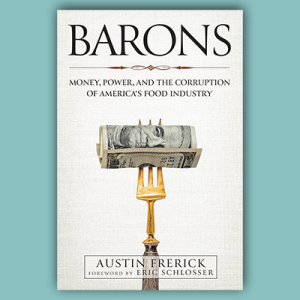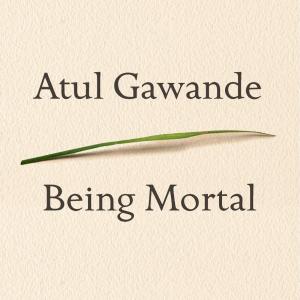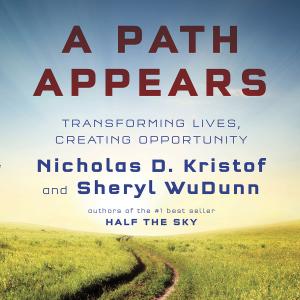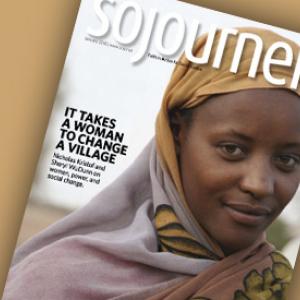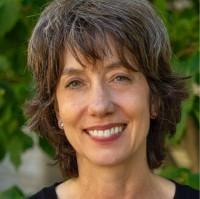
Molly Marsh is a writer in Minneapolis.
Posts By This Author
Corporate Monopolies Have Transformed Every Aspect of Our Food System
In ‘Barons,’ Austin Frerick explains that solutions will require restructuring who has power.
FARMER AND WRITER Wendell Berry has reminded us for decades that eating is an agricultural act, a daily, sacred practice that connects us to the land and people who produce our food. But given the story Austin Frerick tells in Barons: Money, Power, and the Corruption of America’s Food Industry, it’s fair to say eating is now an industrial act.
Frerick, an expert on agricultural and antitrust policy, grew up helping his grandparents farm near Cedar Rapids, Iowa. He watched dramatic changes in the state’s landscape over time: Corn and soybeans replaced diverse crops. Pigs and cows disappeared. Family farms and the local businesses that supported them faded away, replaced by industrial-scale farms.
Frerick looked for answers and found a handful of tycoons driving these changes across the U.S. He profiles seven of them, showing how their corporate monopolies have transformed every aspect of our food system.
Jeff and Deb Hansen are the hog barons. The Iowa couple has built an empire of hog confinement facilities, warehouses in which thousands of hogs are packed until ready for slaughter. It’s more profitable for meatpackers to buy these hogs than those from family farms, which has put thousands of small farmers out of business. Frerick writes that since the Hansens started their company in 1992, “the state’s pig population has increased by more than 50 percent while the number of hog farms has declined by over 80 percent.”
What Matters Most?
"Being Mortal: Medicine and What Matters in the End" by Atul Gawande
EARLY IN Being Mortal, surgeon Atul Gawande tells the story of Joseph Lazaroff, a patient with incurable prostate cancer. His medical team pursued multiple treatments, including emergency radiation and surgery, but Lazaroff ultimately died. What most struck Gawande later was that he and the team avoided talking honestly about Lazaroff’s choices—even when they knew he couldn’t be cured.
“We could never bring ourselves to discuss the larger truth about his condition or the ultimate limits of our capabilities, let alone what might matter most to him as he neared the end of his life,” Gawande writes. “The chances that he could return to anything like the life he had even a few weeks earlier were zero. But admitting this and helping him cope with it seemed beyond us.”
Why is that? For one, Gawande’s medical training didn’t prepare him for dealing with frailty, aging, or dying, he writes. He and his peers were taught to “fix,” to heal people with expertise, tools, and tests. Like most doctors, he approached his patients’ challenges as medical problems to solve, whether they were the accumulations of old age or terminal illness.
Good News About Smart Giving
"A Path Appears," Knopf Publishing
IT’S EASY to lose heart when tackling the painful challenges we live with—poverty, racism, violence, sex trafficking. We volunteer and donate our time and money, but do those efforts really make a difference?
Nicholas D. Kristof, a New York Times columnist, and Sheryl WuDunn, a former Times reporter who works in finance, had the same question; A Path Appears is the result of their investigation. The husband-and-wife team canvassed the giving world, interviewing socially minded people working as individuals or in community with nonprofits, corporations, for-profit organizations, and everything in between. Turns out millions of lives are being transformed next door and across the globe—including our own.
Bernard Glassman, for example, is an aeronautical engineer who wanted to do something about homelessness. After researching the issue for six months, he decided jobs were the most urgent need and started Greyston Bakery in Yonkers, N.Y., a for-profit company whose mission is to employ homeless men and women.
How to Beat Ebola
The only way to defeat the epidemic is to strengthen health-care systems.
CONSIDER A FATHER from rural Liberia who shows symptoms of Ebola. There are no health clinics in or near his village, so he and his family make the 10-hour trip to Liberia’s capital, Monrovia, using public transportation, potentially infecting others at every stage of their journey.
They arrive at the city’s public hospital, which is overflowing with patients because the facility is understaffed and underresourced. Staff members don’t have sufficient training or the tools to treat Ebola’s symptoms, the space to isolate infected patients, or the appropriate equipment to protect themselves from danger. They can’t cope with the sheer number of patients—those with the virus or with other illnesses—and the father likely dies.
What if, instead, the father is seen by a community health worker in his village? She notes his fever, vomiting, and diarrhea and knows he needs fluids immediately. The nurse who supervises her concurs, and they begin treatment. In the meantime, the nurse sends word for an ambulance from the nearby clinic to retrieve him, and she tells the family to limit their contact with others and to watch for similar symptoms in themselves for three weeks.
The local clinic is fully staffed and resourced. Doctors and nurses in full protective gear meet the ambulance, take the father to a hospital bed that is placed at some distance from others, and continue administering fluids. Because his community health worker spotted his symptoms early, and because high-quality care is close by, the father likely lives.
Extended Interview with Sami Awad
Sami Awad’s vocation is to tear down walls in the Middle East.
Extended Interview with Nicholas Kristof and Sheryl WuDunn
Promoting gender equality is crucial to combating global poverty, a point Nicholas Kristof and Sheryl WuDunn make in their new book,
Audio Interview with Nicholas Kristof and Sheryl WuDunn
Promoting gender equality is crucial to combating global poverty, a point Nicholas Kristof and Sheryl WuDunn make in their new book,
Turning Despair into Hope
Focusing on women and girls is the most effective way to fight global poverty and extremism.
New and Noteworthy
Uwem Akpan's Double Calling as Priest and Writer
While we'd love to think we inspired Oprah to choose Uwem Akpan's Say You're One of Them as her current book club pick, we are glad his collection of stories is getting lots of new readers. Last year we asked Sojourners contributing writer Kimberly Burge to profile this important writer -- probably the first Nigerian Jesuit priest ever to have two stories published in The New Yorker. Burge writes about Akpan's double calling as a priest and writer, his early training in religious formation as well as the craft of writing. "More and more," Akpan says, "I'm beginning to believe that Christ was both a priest and a poet."
A Look Inside Graphic Novels
Take a look inside some of the graphic novels featured in Van Jensen's article, "Nothing Comic About It."
Want to End Poverty? Focus on Women and Girls
Promoting gender equality is crucial to combating global poverty, a point Nicholas Kristof and Sheryl WuDunn make in their new book,
New and Noteworthy
Resources About Sports and Human Rights
For more on sports and human rights, check out these books:
New and Noteworthy
Theology in a Minor Key
Steven J. Nichols talks Blues, Suffering, and Salvation
The blues can articulate our deepest suffering as broken humans in need of redemption, says Stephen J. Nichols, professor of Christianity and culture at Lancaster Bible College and author of Getting the Blues: What Blues Music Teaches Us about Suffering and Salvation. Listen in as he talks with Sojourners associate editor Molly Marsh about the theological story contained in the blues.
